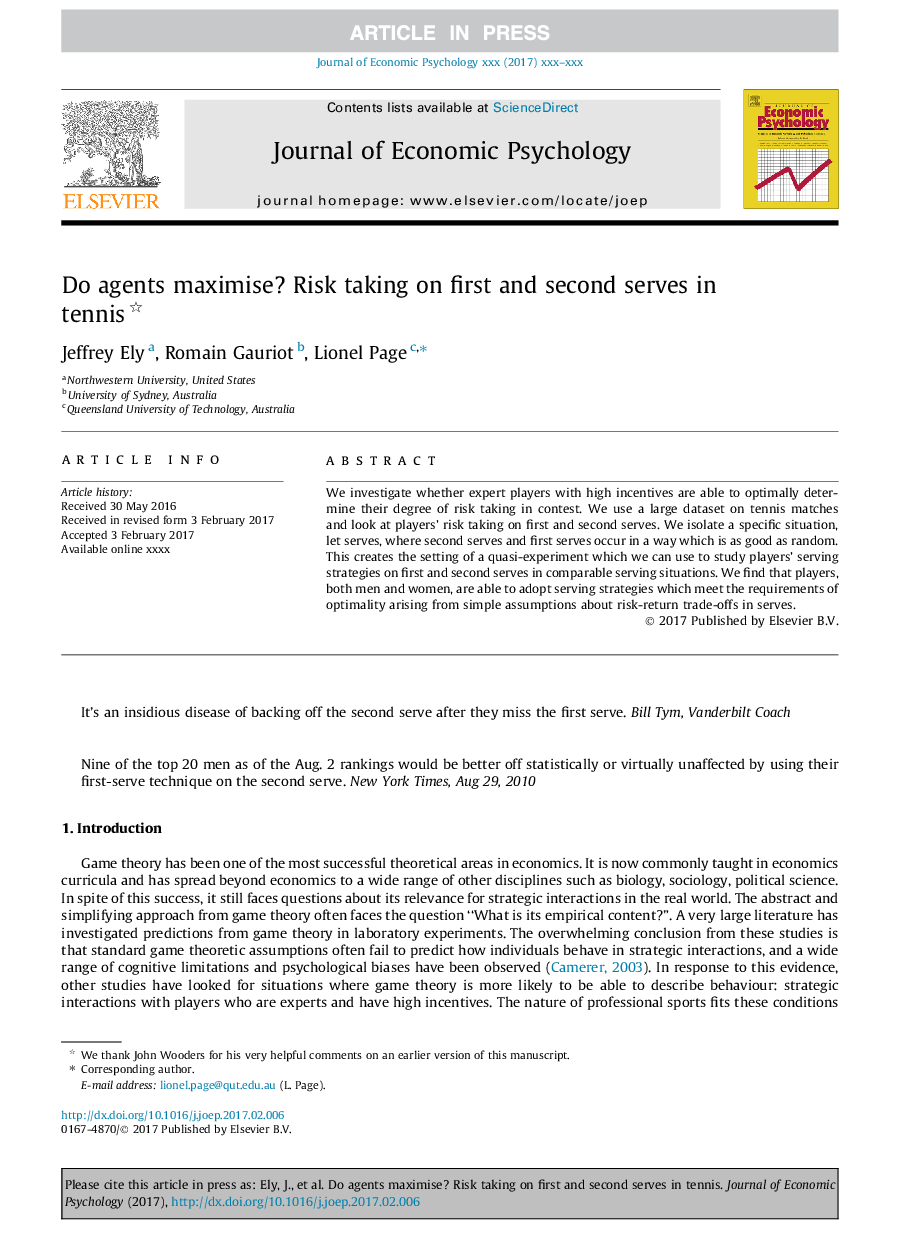| Article ID | Journal | Published Year | Pages | File Type |
|---|---|---|---|---|
| 7244149 | Journal of Economic Psychology | 2017 | 8 Pages |
Abstract
We investigate whether expert players with high incentives are able to optimally determine their degree of risk taking in contest. We use a large dataset on tennis matches and look at players' risk taking on first and second serves. We isolate a specific situation, let serves, where second serves and first serves occur in a way which is as good as random. This creates the setting of a quasi-experiment which we can use to study players' serving strategies on first and second serves in comparable serving situations. We find that players, both men and women, are able to adopt serving strategies which meet the requirements of optimality arising from simple assumptions about risk-return trade-offs in serves.
Related Topics
Social Sciences and Humanities
Business, Management and Accounting
Marketing
Authors
Jeffrey Ely, Romain Gauriot, Lionel Page,
